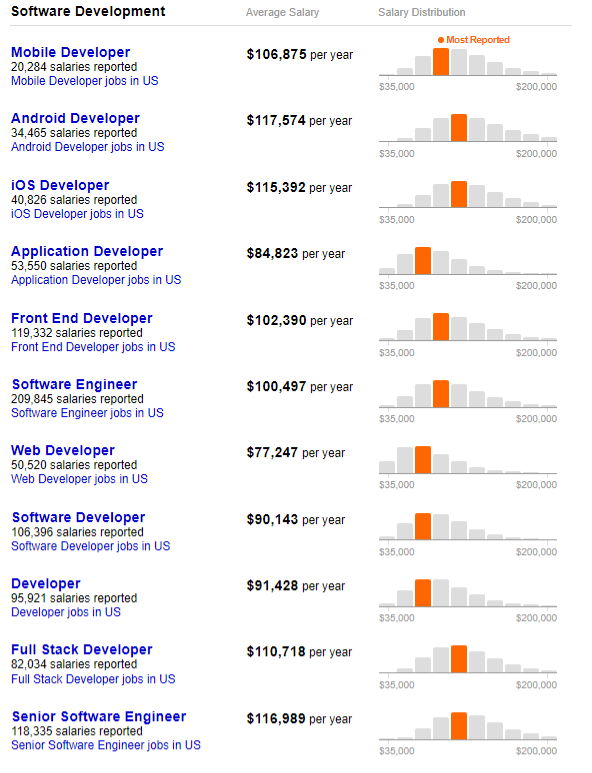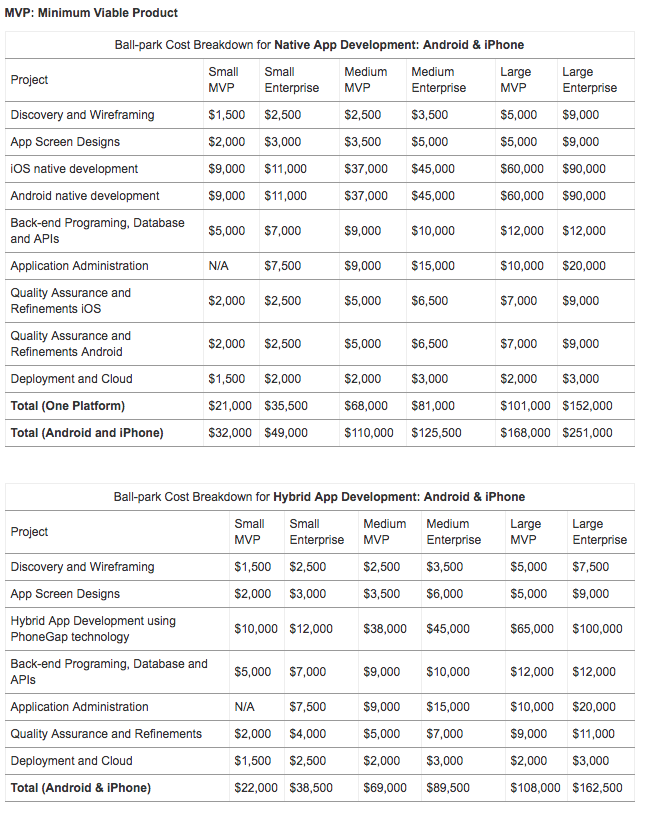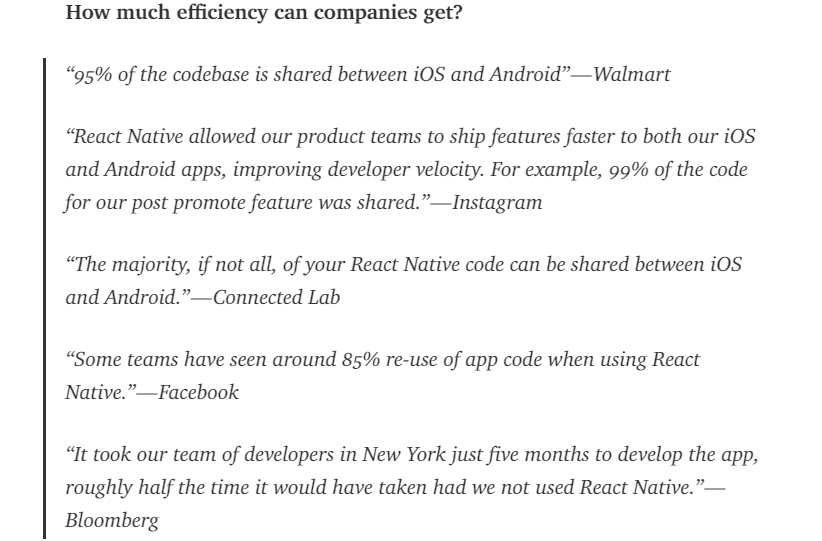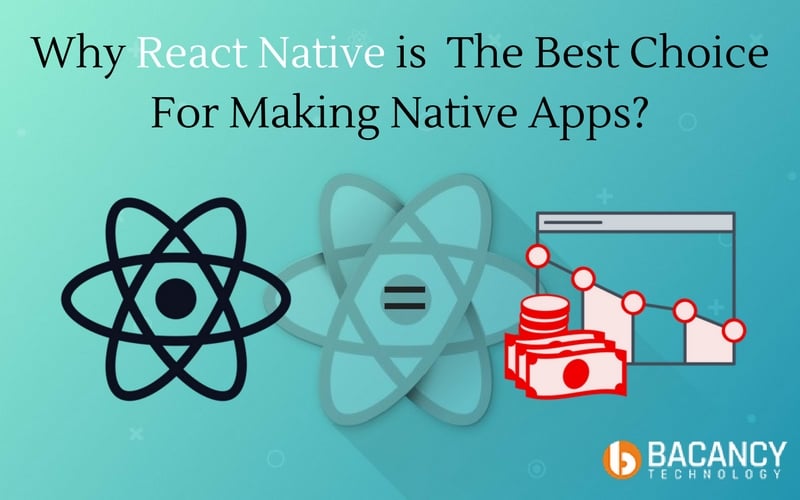It’s been almost a year, I am working with corporate mobile team building mobile applications for both iOS and Android. The one question that was continuously coming up with when approaching for funding is ‘the cost of native application is too high as we have to build two separate solutions iOS and Android so; is the any alternate or firm solution to the native mobile app development?
Yes, there is a solution. There are 5 native app development frameworks like Ionic, PhoneGap, Xamarin, React Native, and Progressive Web Apps.
But, why there is a requirement of alternative to the native apps?
Building two separate applications for different platforms is difficult as well as costly. It also requires two completely different ecosystems. To develop an Android application, you will be required to have sufficient knowledge of Java as well as Android SDK. If you want to develop an iOS app, then you will be required to learn Swift or objective-C and Cocoa Touch. Furthermore, developers will be also required to learn other significant tools in their ecosystem, including packages, libraries, testing tools and more. Each of these demands unique skillset, so not only does a client has to build two separate applications, but the client have to hire two separate development teams and its obvious if this gets costly.
Mobile Application Developer Salaries in US

Since the past half of a decade, the cost of native mobile application development has been spiraling out of control. For the startups with the substantial funding, it has become so difficult to create MVPs, native apps and prototypes. The existing market leaders, who wanted to be updated are building new applications to retain the best of the best.

And What about building Hybrid apps?
Hybrid mobile apps are developed with JavaScript and it uses a framework or Cordova such as Sencha or ionic. On the other hand, you will be required to have the ability to make calls to native APIs, as most of your app is written with JavaScript and HTML inside a WebView. Hybrid apps are always labelled of being sluggish and slow and not having the superior quality as ‘native’ apps. Such apps have not become successful yet to match the look and feel of ‘native’ apps. Things like navigation behavior, animation and scrolling acceleration will always be sub-par in a user experience.
Then is it okay to ditch web apps for mobile only?
90% of Time on Mobile is Spent in Apps
There are almost 2.7 billion people on mobile phones right now. In a short span of time the number is going to be 5 billion. It does not make sense to skip such a huge number of people out of your business. Mobile app is the next frontier and delivering an excellent user experience and advancing your business through the smartphone’s app seems smarter decisions to make! With the skyrocketing demand and increased complexity, the argument that web development is cheaper in no longer considered as a valid argument.
Then what’s the Solution
There are 5 native app development frameworks, but I would like to opt React Native mobile app development.
If you are already in harmony with the mobile development landscape, then I am pretty sure that you might have heard about React Native and NativeScript. React Native is a Javascript framework for writing natively rendering, real, mobile applications for IOS and Android. React Native renders mobile platform’s UI libraries rather than using CSS and HTML as hybrid apps do.
React Native translates the markup code to native, real, UI elements that power the mobile platform’s rendering views. So, when your application is running complex logic, still your UI will be running smoothly around sixty frames per second. So, it means your application will undoubtedly maintain high performance without sacrificing capability. It means you can develop native applications with the look and performance and at pocket-friendly budget and can have the same feel that you expect.
So, with a single engineer of React Native you can leverage the specialization in cross-platform mobile app development, native desktop app and even a web application using the existing code base and you can ship your app to the Play Store and the App Store for a fraction of the traditional cost without losing out on the benefits of quality and native performance.
How Much Efficiency Companies Can Get?
Organizations have solid evidence confirming around 80% to 100% of code for mobile applications created using React Native is cross-platform. React Native lets you build iOS and Android apps using only a single programming language – JavaScript. The best thing about React Native is it uplifts the efficiency even further, you can share your code across mobile platforms as well as web. React Native controls the wealth of talented JavaScript and web developers, reducing resource cost and enlarging the range of work and projects the resources can contribute to.

Epilogue
The quality of the apps, ease of development, the richness of the platform, ecosystem and the huge cost efficiencies makes React Native a viable solution for corporate mobile app development.
If you are an entrepreneur or a startup company and if you are looking to cutting costs and speed up the development time, without compromising on quality or performance, then you should hire React Native developer or a team from us as it’s a prime time and will undoubtedly benefit from the bottom line. We are top-notch React Native mobile app development company and have already built a number of cross-platform native apps for Android & iOS mobile platforms.

